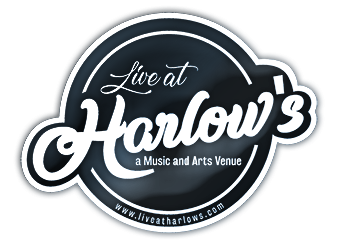By Sam Wilder
Engaging with your audience while you are performing live will allow you to connect with them on a deeper level. It’s like giving them an open invitation to your world while performing on stage. The more engaged your audience is with your performance, the more energy there is from the crowd. You and your band can work off this energy to give an even more incredible performance. It can also make the environment less stressful, allowing you and your band to enjoy the overall performance while you’re on stage.
How to Engage with your Audience? Glad you asked! When performing live on stage, it’s easy to get lost in your music. When this happens, you might forget about the audience entirely. Here’s what you can do so that doesn’t happen:
1. Make Eye Contact with your Audience
Now I’m not saying that you have to make eye contact with every individual person in the crowd, which is practically impossible depending how big of an audience you have watching. What I’m trying to say is don’t forget to look away from your instrument and look at the crowd once in a while. To the people in the crowd, that would be enough engagement to reconnect them with your performance because you are acknowledging the fact that they are there. From their point of view, it may also look like you’re looking straight at them. Create the illusion that you can see every single person in the crowd even if you can’t.
2. Communicate with your Audience
Before you perform, introduce yourselves right in the beginning and start engaging with the crowd. When transitioning to your next songs, don’t just go straight in and start playing, conversate with the audience. I’ll talk about this more in the next section, but don’t forget to use those small breaks in between songs to engage with your audience and reconnect with them.
Find ways to allow your audience to perform with you. Maybe invite them to sing along if you are performing a song that everyone in the crowd knows. Even as simple as having your audience clapping along to the beat will make them feel like they are a part of the magic that is happening on stage. And the last thing you should never forget is to thank your audience for coming to your show at the end of your performance. They could’ve spent their time anywhere else, but they chose to watch you perform so the least you can do is thank them for their support. Now, this leads us to our next tip, the Art of Stage Banter.
Stage Banter is when you talk to your audience whether it be at the beginning of your performance, in between songs during transitions, or even at the closing of your performance. Having good stage banter when performing live can really set you apart from different performers. It helps establish a relationship with your audience while also building a level of trust with them. You will also show your audience that you care about them.
When you stage banter, here are some things you should keep in mind:
1. Have a Solid Introduction
Make sure you introduce yourself and your band right from the beginning so everyone in the crowd knows who you are.
Let them know where you’re from and give them some background information about you and your band. Try to talk about something that is relatable to everyone in the crowd. Maybe something about the city that you’re all in or something about the venue that you’re performing at.
Being able to relate to the crowd, in the beginning, can set your performance on the right track.
2. Be Confident
This will all come with experience, but try your best to sound confident. Whenever you stage banter, don’t be hesitant. The more hesitant you sound, the less natural you sound and you may find yourself in a very uncomfortable situation, for both your band and the audience. If appropriate, think about using big body movements to get the crowd’s attention.
Don’t forget to make eye contact with the crowd and have good posture while you speak. Remember that what you say while you’re on stage is just as important as the music you perform. Choose your words carefully and be confident when you talk.
And don’t forget to be yourself. Don’t try to be anyone else and learn how to be confident in the person you are. This will overall help you look more confident during your stage bantering while making you sound natural and unforced.
3. Keep it Nice and Short
Talking and engaging with the crowd can be very effective at making your performance more entertaining for everyone. However, it can be a problem if you let it go on for too long. Instead of telling the entire backstory of your band or songs in between transitions, just bring up important key details.
For your Band:
Where your band is from
How long you’ve been together
A “short” funny story
Other “short” stories that are relatable
For your Songs (Transitioning in between songs)
A “short” description of what your song is about
Who or what the song is dedicated to
The reason why you wrote the song
If covering a song, talk about the reasons why you like the song
Try to not to let it drag on for too long. If you can get your message across in fewer words, then go for it. people want to know about your entire backstory, you can save it for after the performance when you mingle.

